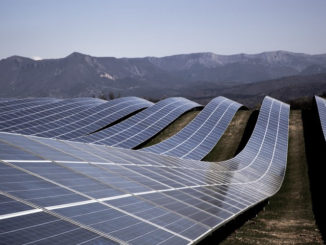
World order is shifting. The outgoing one — Pax Americana — rests on US hegemony, and although it is accepted fact interpretations vary. For some it permits rising wealth, peace, and cooperation via international institutions; for others, it minimises anarchy as the US military operates as a global police force, while yet others interpret it as imperialist architecture serving the interests of the ‘West.’
Key to its durability has been the transatlantic bond to keep Europe closer to Washington than Moscow, US dominance in Latin America preventing socio-economic experiments, courting Middle East dictatorships ensuring access to oil, and cooperation with the Asian Tigers so the US military can keep Asian trade routes open.
The benefits (voluminous trade, security guarantees, democratic culture) of that architecture for key European countries outweighed affronts like Orwellian mass surveillance or insults after disobedience in the wake of the 2003 Iraq invasion. In Latin America, even recalcitrant countries like Venezuela benefited from increasing world trade as US petrodollars flushed into social programmes. Most relevant for Washington, the experiences of revolutionary governments eliminated attempts of organising Latin societies in ways the US didn’t at least implicitly approve of. Many Latin leaders then learned that accepting certain ‘realities’ would get them generous support and international recognition, even if they called themselves Socialists.
While such compromising worked well in many parts of the world, the related economics also desolated entire regions in the US itself. And even though they provided social scientific (The Wire) or entertainment value (Breaking Bad) for the dystopian re-writing of the ‘American Dream,’ coastal elites brushed their plight aside. Thus, absent a social democratic tradition, social costs cancelled any benefits, enabling the rise of an intellectually challenged, narcissistic billionaire, branding himself as working-class hero via creepily manipulating social media.
Donald Trump correctly interprets his mandate — even though it’s a minority one — as doing away with received wisdom about Pax Americana. Thus his celebration of ignorance about international affairs, bullying super-allies like Australia, questioning NATO, cosying up to Russia and irritating China. Even so, the windup of the current order keeps the structures of the inter-state and global economic systems intact, including the ecological system (although it will likely accommodate less human life). Yet, the visible deconstruction of Pax Americana still requires new mental frames to device appropriate solutions. Unfortunately, this insight seems still lacking as many leaders court China as the new hegemon.
Chinese President Xi Jinping sensed this expectation and shrewdly offered his country as protector of the global order. China’s opening is the failure of the Trans-Pacific Partnership (TPP) a free ‘trade’ pact meant to lock participants (including the US government) into US industry’s sphere of influence, while keeping China at bay. Most TPP participants, above all Chile, still think the treaty can be salvaged, but they also hedge with China in case it can’t. China’s version of geoeconomics is the Belt and Road initiative, a massive infrastructure project that aims to connect Chinese industry with the Middle East, North Africa, some Baltic states and Europe. It’s a TPP cast in concrete, meant to absorb Chinese labour and capital.
And Chile wants in. This became clear during President Michelle Bachelet’s visit to China, where she signalled interest to cooperate on issues like politics, economy, and the environment. President Xi, while referring to Latin America as ‘rising power,’ emphasized Chile’s crucial position in the region and hailed its boldness for initiating relations with Beijing early on; as a reward he green-lighted Chile’s admission to China’s Asian Infrastructure Investment Bank (AIIB). Such flattery chimes well with the Chilean public and media, who so far have mostly only enjoyed the benefits of a greater international profile. Thus, the media — owned mostly by oligarchs with international business interest — kept quiet although it usually sets of the red lights when the government talks to socialist countries. Popular opinion, too, is far less critical of China, probably because Beijing never helped overthrowing a government. The new partnership seems only natural, unfettered by criticism.
European public, and especially German elites, have mostly adored the US. Therefore, Ms Merkel’s statement after the NATO summit warrants awareness. Unusually blunt, she reacted to Mr Trump’s public and private bullying by declaring the times when ‘we could totally rely on others’ as being over. Ms Merkel’s subsequent elevating of China to ‘strategic partner’ during Prime Minister Li Keqiang’s visit early June speaks even louder than those words.
Few, however, seem to have realized that Pax Americana, by definition, can’t be sustained by China. Although the US is no saint, part of its approach have always been Enlightenment values. China doesn’t have interest in those since they would undermine the Politburo’s legitimacy. Moreover, no one asks questions about the mutual impact of investment given the vastly differing sizes of the Chinese and the Chilean markets for example; about the hypocrisy of standing for human rights but growing rich with a country that suppresses them, as well as the consequences for democracy generally, as most economically successful countries today are (increasingly) authoritarian ruled.
Thus, deepening cooperation with China requires far more critical understanding about the country’s interests beyond trade, and how to negotiate Chinese economic and cultural impact. Otherwise history will repeat in an Asian setting. Interesting times indeed.



